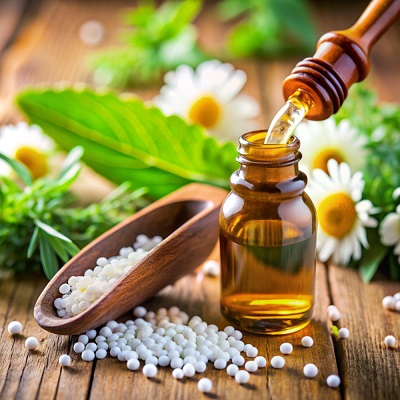 Homeopathy’s roots emerge from the findings, teachings and writings of Dr. Samuel Hahnemann (1755-1843). He was a physician, chemist and scientific translator. The birthday of homeopathy is 1796 when Hahnemann first published his findings.
Homeopathy’s roots emerge from the findings, teachings and writings of Dr. Samuel Hahnemann (1755-1843). He was a physician, chemist and scientific translator. The birthday of homeopathy is 1796 when Hahnemann first published his findings.
Homeopathy became spectacularly popular in Europe and in the United States in the 1800s. European royalty, religious leaders, American entrepreneurs and writers were among its strongest advocates.
It was successful in treating the epidemics raging at the time including cholera, typhoid, measles, scarlet and yellow fever with a mortality rate of 3 – 6% or less versus 30 to 70% mortality of conventional medicine.
As it was gaining widespread popularity, it was vigilantly opposed by establishment medicine. This opposition led to a decline of homeopathy in the 20th century, in the United States. Other nations including Europe and Asia, were experiencing a steady growth of homeopathic teachings and interest.
Recent Development: Homeopathy is the World’s Fastest Growing Medicine
In the United States, since 1970 public interest has risen again, and homeopathy is coming back in North America.
Meanwhile it is used all over the world to treat humans, animals and plants with impressive results in acute and even severe chronic conditions.
Homeopathy in the World
Today, all French and German pharmacies sell homeopathic remedies. In France, 30% of all physicians prescribe homeopathic medicines, 20% in Germany, and 40% in the UK.
Homeopathy has been integrated into the healthcare systems of many European countries including France, Germany, the Netherlands, Italy, Switzerland and Portugal.
Mahatma Gandhi promoted homeopathy in India where it is recognized as one of the three pillars of public medicine together with Ayurveda and Western medicine.
In India, today there are over 200,000 registered homeopathic practitioners, 215 homeopathic hospitals and 7,000 homeopathic dispensaries. There are homeopathic colleges with a four to five year training in homeopathy. Indian homeopaths are known for their expertise in treating very severe cases including cancer.
- The Indian government controls epidemics of malaria, Japanese encephalitis, dengue fever, and epidemic fever with homeopathy
- The Cuban government now depends on the homeopathic preparation of medicines (no provings) to manage its leptospirosis epidemics and dengue fever outbreaks.
- The Brazilian government funded two large trials that successfully reduced the incidence of meningococcal disease in those given the homeopathic prophylactic.
- The governments of Thailand, Colombo and Brazil use homeopathy to manage dengue fever outbreaks and epidemics. http://homeopathyplus.com.au/Homeoprophylaxis-Human-Records-Studies-Trials.pdf
In Germany, med students must take at least one introductory course in homeopathy. The German agricultural department sponsors courses in homeopathy for farmers to enable them to treat their animals without antibiotics.
Brazil has adopted homeopathy for the public health service in 2006, and it is popular in Russia, Switzerland, France, Italy, Germany, Netherlands, England, Argentina and Mexico, India, Pakistan and Sri Lanka.
Clinical evidence accumulated over more than 200 years of use demonstrates that homeopathic medicine is the viable alternative to standard medicine. It is a scientific system of medicine that is proven safe and effective. 200 years later it is still doing the same.






